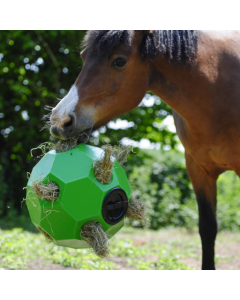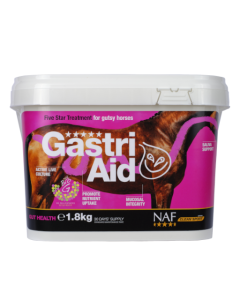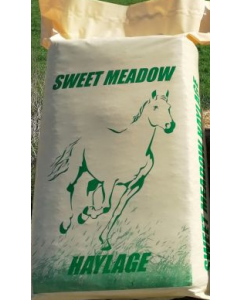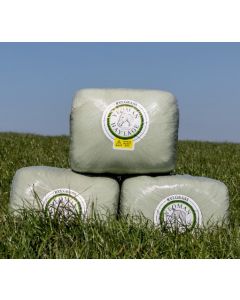Structural carbohydrates are the fibre feed your horse needs for its daily work. Light working horses typically form a diet from pasture, hay, haylage, and chaff that suits their digestive structure. For medium to hard worked horses, an additional feed may be required to provide sufficient energy to maintain condition and stamina. Fibre is the most important component of a horse's diet, so it is particularly important that the diet is adapted to your horse's workload.
What is fibre?
Conventionally, as a source of energy, cereals were fed which included a typically high level of starch. Over time, it became apparent that the digestive system was not able to fully digest cereals before they passed through to the hindgut, which led to the feeding of oil and fibre as a source of energy becoming more popular.
Fibre is made up of an elaborate binding of compounds and carbohydrates which are fermented by bacteria in the hindgut. It is made up of cellulose, hemicellulose, and lignin, which comprise of different levels of energy. Fibre with high levels of cellulose and hemicellulose will typically contain greater amounts of energy. Whereas lignin will supply lower levels of energy due to the horse’s inability to digest the lignin. If you are unsure of how much energy particular feedstuff or forage contains, you can seek advice from suppliers.
Why is fibre important
As fibre is a crucial part of your horse's diet, it is important to match it to the type of work your horse is doing. The 'structural carbohydrates" serve as a source of energy for your horse to manage its daily routine. Horses do not have the digestive enzymes in their small intestines to digest the carbohydrates that make up fibre. However, the bacteria in the hindgut can digest the fibre through bacterial fermentation and pass on the energy. In addition, the breakdown of fibre in the hindgut also provides biotin, vitamin K and B1, which are also important for your horse to function.
The fibre you feed your horse in their daily diet can be described as 'bulk feed', as your horse's gastrointestinal tract needs to stay full to stay healthy. The bulk feed nourishes the horse's gut and keeps it full and the bacteria healthy. In addition, the gut can also act as a water reserve as the fibre is able to soak up water in the gut and retain it for the horse when it is needed.
Read more: How to feed your horse according to workload
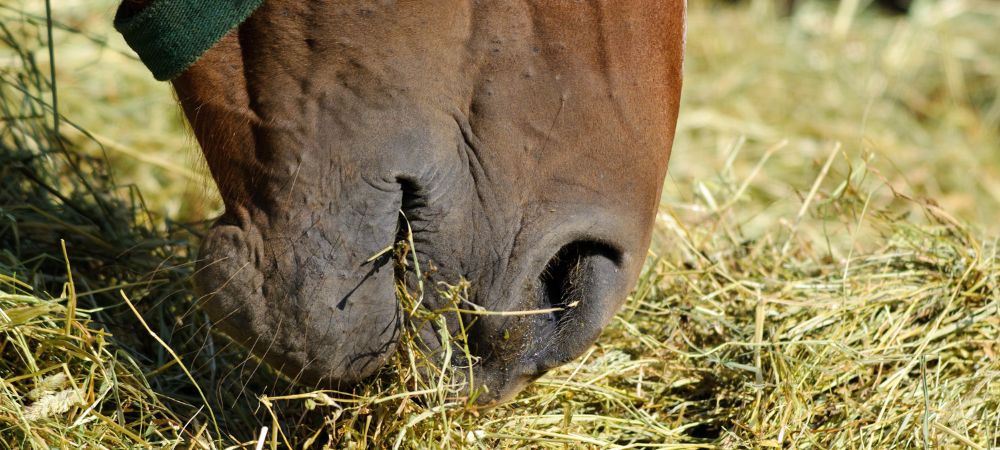

What could happen if insufficient fibre is fed
When inadequate fibre is fed to your horse numerous problems can arise:
- Colic may become apparent if the gut is not filled with fibre or forage. If the gastrointestinal tract is not supplied with sufficient fibre, it can cause twisting of the gut and can lead to severe colic- always seek for veterinary advice if your horse is showing signs of colic.
- Chewing high-fibre feed produces copious amounts of saliva, which acts as a buffer for the gastric acids produced in the horse's stomach. The fibre also forms a layer that reduces the splashing of gastric acid on the stomach lining. If fibre is not fed, there is a risk of gastric ulcers if the gastric acid is not adequately buffered.
- If your horse is fed less fibre, you may see a loss in weight or have difficulty gaining the weight. When less fibre is available, the energy content decreases and so does the number of calories, leading to an energy deficiency.
- Boredom can be the result of your horse not getting enough forage or fibre feedstuff. During the time horse's normally spend eating pasture, hay or haylage, they may become bored and begin to carry out new behaviours to pass the time. Vices such as crib biting, weaving, or the chewing of objects around the field or in the stable can become habit if your horse is not provided with enough forage.



